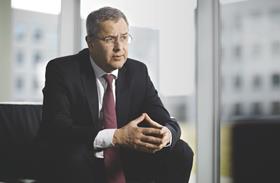
The chief executive of container shipping giant Maersk Line has insisted the company is doing all it can to make its business more streamlined and more able to attract investment, in addition to implementing a much-publicised and widely criticised general rate increase of US$1,500 per container from 1 January 2013.
In an exclusive interview due to be published in the January 2013 edition of Eurofruit, Søren Skou said prices for fresh produce freight movements had to rise in order to turn the company away from a major fall in turnover last year, but he also admitted that other areas of the business had to be rationalised in order to achieve that goal.
To that end, Skou revealed he had established an entirely new chain of command at the company since he took charge on 16 January 2012 and had cut its entire staff by around 50 per cent.
"I have set up a new management team all the way up to senior level and reduced the headquarters by half in terms of employees," he said. "These initiatives are starting to show results and I have promised the shareholders that we will deliver a modest profit in 2013."
Maersk Line will spend all of December negotiating contracts with its customers, something which Skou conceded would determine how well the line does next year.
"We need prices restructured to a level where we don’t have to go back to our shareholders and the bank for constant support," he explained. "We are not planning to build any containers next year any more; our most immediate plan is to get the business into shape for investment."
In terms of turnover, Maersk Line lost US$600m (€462m) in 2012, most of it in the fourth quarter.
"We lost the same amount in the first quarter of 2012," Skou continued. "Since then, we have gone through your regular turnaround, focusing on higher prices when we can and getting lower costs out of the system."
He added: "You have to bear in mind that this is a business with more than US$20bn (€15.4bn) of invested capital. We should be making US$2bn (€1.54bn) a year, and this won’t happen anytime soon. We expect improvements, but it is one step at a time at the moment."






No comments yet